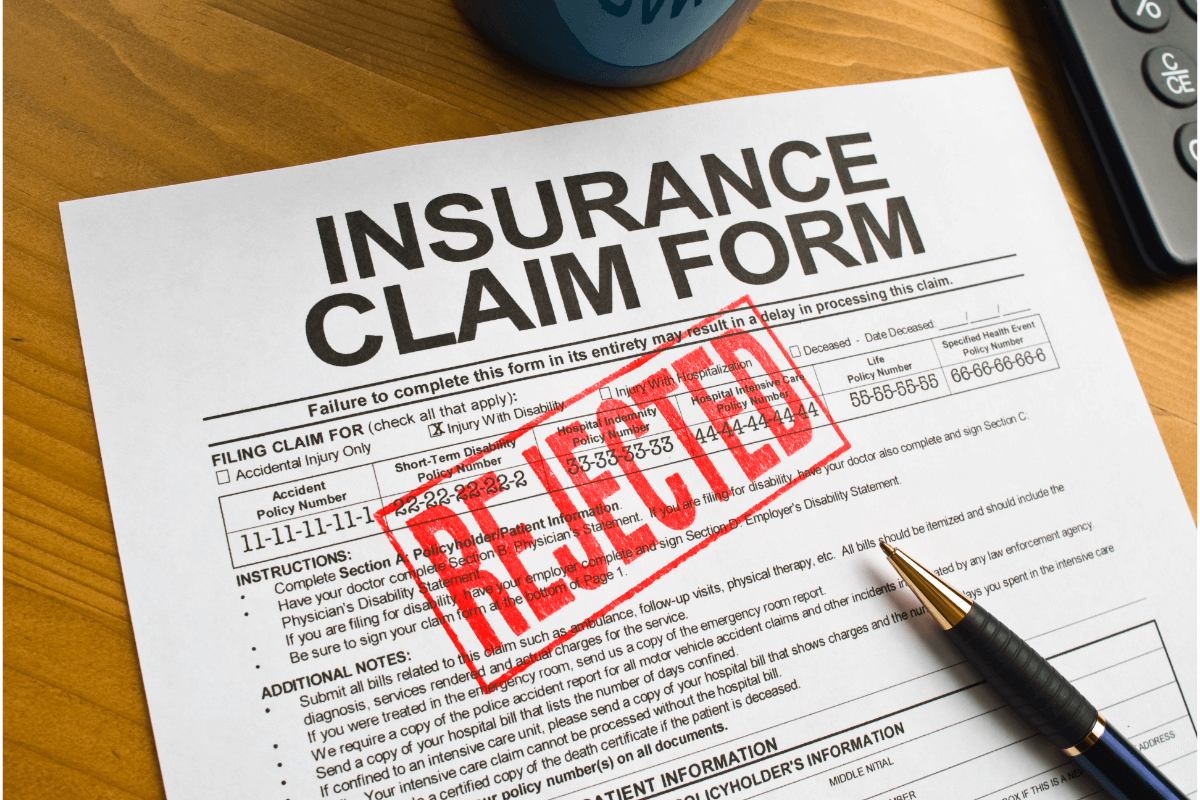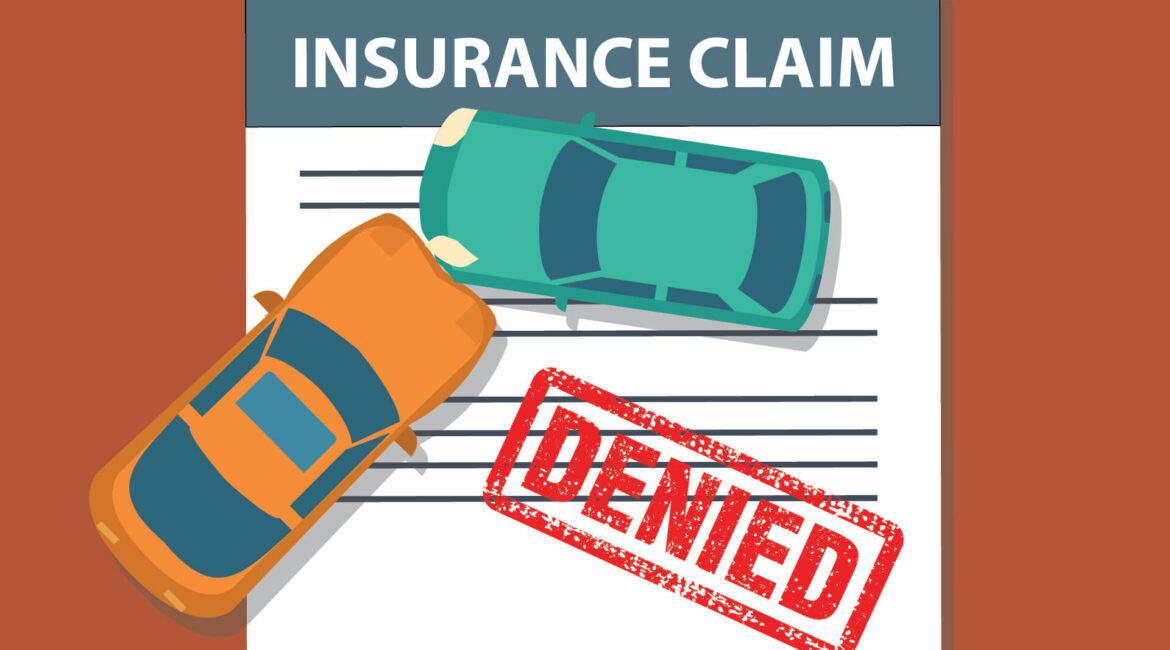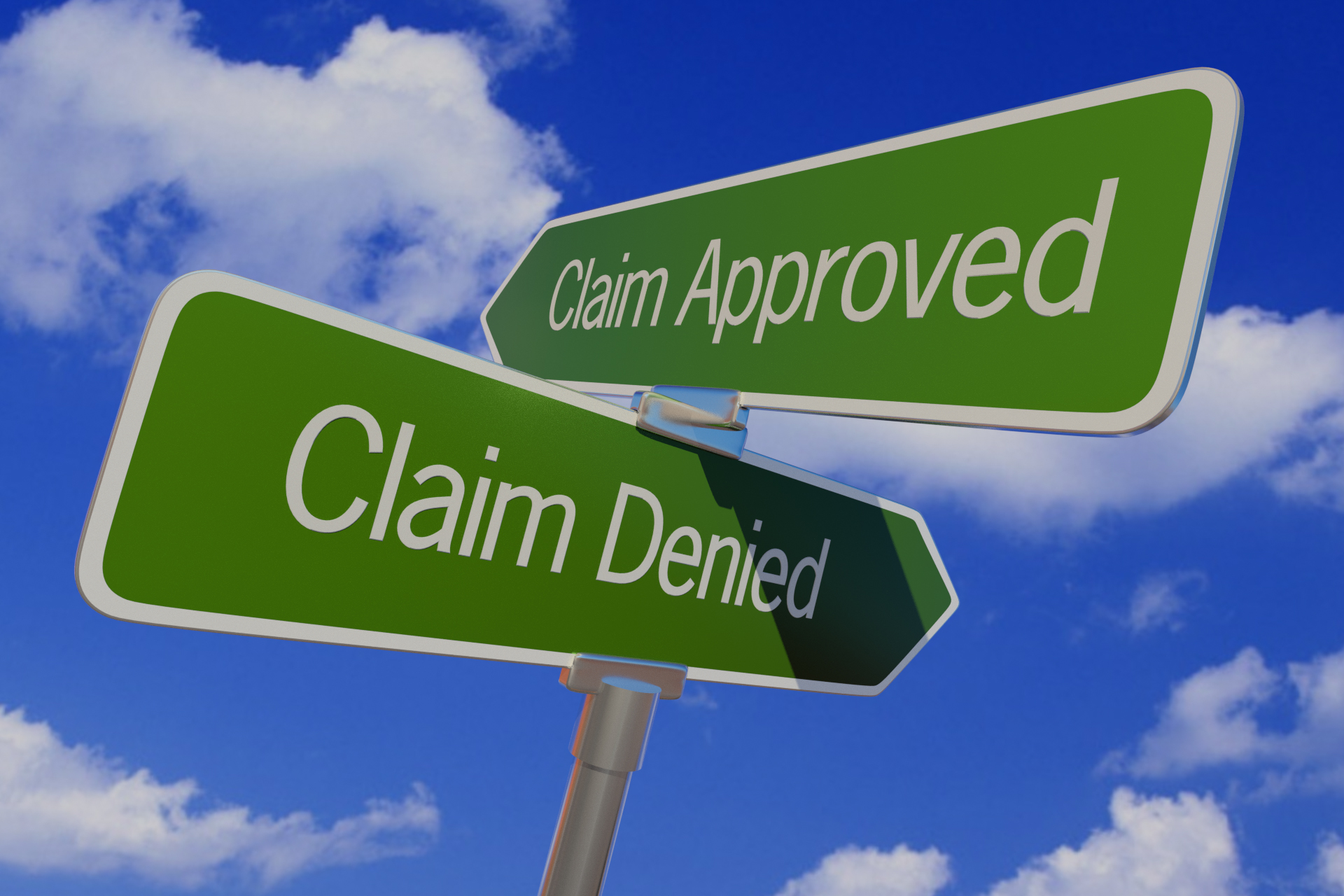Understanding Insurance Coverage: Insurance Company Refusing To Pay For Rental Car

Insurance company refusing to pay for rental car – Rental car coverage is a crucial aspect of car insurance policies, providing financial protection in case of accidents or damages while driving a rented vehicle. Understanding the specifics of this coverage is essential to ensure you are adequately protected and avoid unexpected financial burdens.
Rental Car Coverage in Car Insurance Policies
Rental car coverage is typically included as part of a comprehensive car insurance policy. It provides financial protection for damages to the rental car, as well as liability coverage for injuries or property damage caused to others. However, the specific coverage provided can vary depending on your insurance provider and the type of policy you have.
Common Exclusions in Rental Car Coverage, Insurance company refusing to pay for rental car
While rental car coverage offers protection, certain situations are often excluded from coverage. These exclusions are typically Artikeld in the policy’s terms and conditions. Some common exclusions include:
- Damage caused by driving under the influence of alcohol or drugs:Insurance companies typically do not cover damages incurred while driving under the influence, as this is considered a violation of the policy terms.
- Damage caused by driving outside the permitted geographical area:Many policies specify a geographical area where coverage applies. Driving outside this area may void the coverage.
- Damage caused by using the rental car for commercial purposes:If the rental car is used for business purposes, such as transporting goods or passengers for hire, it may not be covered under the policy.
- Damage caused by exceeding the rental car’s mileage limit:Some rental car agreements have mileage limits. Exceeding these limits can result in additional fees and may not be covered by insurance.
- Damage caused by using the rental car for unauthorized activities:Activities such as racing, off-road driving, or towing are typically excluded from coverage.
Collision and Comprehensive Coverage
Collision and comprehensive coverage are two essential components of car insurance that can affect rental car coverage.
- Collision Coverage:This coverage protects you from financial losses if your rental car is damaged in an accident with another vehicle. It covers repairs or replacement costs, minus your deductible.
- Comprehensive Coverage:This coverage provides protection against damages to your rental car caused by events other than collisions, such as theft, vandalism, fire, or natural disasters. It also covers repairs or replacement costs, minus your deductible.
Common Reasons for Refusal
Insurance companies have specific criteria for approving rental car claims. While they strive to provide fair coverage, certain situations may lead to denial. Understanding these common reasons can help policyholders avoid unexpected costs and ensure a smoother claims process.
Policy Exclusions
Policy exclusions Artikel situations where coverage is not provided. These are explicitly stated in the policy document. It’s crucial for policyholders to carefully review their policy to understand these limitations.
- Rental Car Not Covered:Some policies may exclude coverage for rental cars altogether, or only cover specific types of rentals, such as those obtained for business purposes.
- Rental Car Used for Non-Covered Purposes:If the rental car is used for purposes not covered by the policy, such as illegal activities or unauthorized modifications, the claim may be denied.
- Rental Car Not Rented Within Policy Guidelines:Policies may have specific guidelines regarding the rental car, such as the type of vehicle or the rental duration. If these guidelines are not followed, coverage may be denied.
Insufficient Documentation
Proper documentation is vital for supporting a rental car claim. This includes:
- Rental Agreement:The rental agreement serves as proof of the rental and details the terms and conditions.
- Police Report:If an accident occurred, a police report is essential to establish the details of the incident.
- Repair Estimates:Estimates from reputable repair shops demonstrate the cost of repairs for the rental car.
- Other Relevant Documents:Any other relevant documents, such as photos of the damage or witness statements, can strengthen the claim.
Lack of Coverage
The policyholder’s insurance may not cover the specific type of damage or incident.
- Collision Coverage:Collision coverage typically covers damage to the rental car due to an accident, but may have deductibles or limitations.
- Comprehensive Coverage:Comprehensive coverage protects against damage caused by non-collision events, such as theft, vandalism, or natural disasters. However, it may have exclusions for specific events or types of damage.
- Rental Car Coverage:Some policies offer specific rental car coverage, but it’s essential to understand its limitations and whether it covers all types of rental cars.
Policyholder Negligence
Policyholders may be held responsible for rental car costs if their actions contribute to the damage or loss.
- Driving Under the Influence:Driving under the influence of alcohol or drugs can result in policy denial, as it is considered a violation of the policy terms.
- Reckless Driving:Reckless driving, such as speeding or street racing, can lead to policy denial, as it constitutes a breach of the policy’s safe driving requirements.
- Failure to Maintain the Rental Car:Neglecting to maintain the rental car, such as ignoring warning lights or failing to perform routine maintenance, can contribute to damage and lead to claim denial.
Legal Rights and Options

When an insurance company denies a rental car claim, policyholders have several legal rights and options available to them. Understanding these rights is crucial to ensuring a fair resolution and potentially recovering the costs associated with the rental car.
Appealing a Denied Claim
Policyholders have the right to appeal a denied claim. This process involves presenting additional evidence or arguments to support their claim. The appeal process typically involves the following steps:
- Review the Denial Letter:Carefully read the denial letter to understand the reasons for the denial. Note any specific policy provisions cited.
- Gather Additional Evidence:Collect any additional documentation, such as police reports, medical records, or witness statements, that may support your claim.
- Submit a Formal Appeal:Follow the instructions provided in the denial letter to submit a formal appeal. Include a detailed explanation of why you believe the denial was incorrect and any supporting documentation.
- Follow Up:After submitting your appeal, follow up with the insurance company to inquire about the status of your appeal. Keep a record of all communications.
Prevention and Mitigation

The best approach to avoid a denial of your rental car claim is to take proactive steps to ensure you meet your insurance policy’s requirements and avoid common pitfalls. This involves understanding your coverage, meticulously documenting relevant information, and maintaining clear communication with your insurer.
Preventing Denials
Taking proactive steps can significantly reduce the risk of your claim being denied. Here are some key preventative measures:
- Review your policy carefully:Before renting a car, thoroughly review your insurance policy to understand your coverage limits, deductibles, and any exclusions. Pay particular attention to rental car coverage, as it may have specific requirements.
- Choose the right coverage:If your personal auto insurance policy doesn’t offer sufficient rental car coverage, consider purchasing additional coverage from the rental car company. This can provide you with more comprehensive protection in case of an accident or damage.
- Document everything:Keep detailed records of all communication with the rental car company and your insurer. This includes rental agreements, accident reports, police reports, repair estimates, and any correspondence.
- Report the incident promptly:Notify your insurance company immediately after an accident or damage occurs. Delays in reporting can lead to complications and potential denials.
- Follow the insurer’s instructions:Adhere to the insurance company’s guidelines for reporting claims, obtaining repairs, and providing documentation. This demonstrates your cooperation and can strengthen your claim.
- Get multiple estimates:Before agreeing to repairs, obtain estimates from multiple reputable repair shops. This can help ensure you’re getting a fair price for the work.
Proper Documentation and Communication
Maintaining meticulous documentation and clear communication with your insurer is crucial to avoid claim denials.
- Take photos and videos:Document the damage to the rental car with clear photos and videos. This provides visual evidence of the extent of the damage and supports your claim.
- Obtain witness information:If there were witnesses to the accident, get their contact information. This can provide valuable support to your claim.
- Keep receipts:Save all receipts related to the rental car, including the rental agreement, fuel receipts, and any expenses incurred due to the damage. These receipts can help you justify your claim.
- Communicate clearly and concisely:When contacting your insurer, be clear and concise in your communication. Provide all relevant information and answer their questions thoroughly.
- Follow up regularly:Check in with your insurer periodically to ensure they have received all necessary documentation and are processing your claim. This demonstrates your proactive approach and can help prevent delays.
Common Mistakes Policyholders Make
Many claim denials stem from avoidable mistakes made by policyholders. Here are some common errors to avoid:
| Mistake | Explanation |
|---|---|
| Failing to review the insurance policy | Policyholders may not be aware of their coverage limits, deductibles, or exclusions, leading to misunderstandings and denials. |
| Not reporting the incident promptly | Delays in reporting can create doubts about the claim’s validity and make it difficult to gather evidence. |
| Failing to provide necessary documentation | Missing or incomplete documentation can weaken your claim and make it difficult for the insurer to verify the details. |
| Not following the insurer’s instructions | Ignoring the insurer’s guidelines for reporting claims, obtaining repairs, or providing documentation can result in delays or denials. |
| Making unauthorized repairs | Repairing the car without the insurer’s approval can invalidate your claim and leave you responsible for the costs. |
| Misrepresenting the facts | Providing false information to the insurer can result in claim denial and potential legal consequences. |
Alternative Solutions
If your insurance company refuses to pay for your rental car, you have a few alternative solutions to consider. These options can help you cover the expenses while you navigate the dispute with your insurer.
Using Credit Cards
Credit cards can be a valuable resource for covering unexpected expenses, including rental car costs.
- Pros:Credit cards often offer temporary financing, which can give you time to resolve the insurance dispute. Some cards provide rental car insurance as a benefit, which could cover the cost of your rental.
- Cons:Using a credit card comes with interest charges if you don’t pay the balance in full within the grace period. High interest rates can significantly increase the cost of your rental.
Other Financial Resources
You might consider using other financial resources to cover the rental car expenses.
- Pros:Depending on your situation, you might have access to savings, loans, or personal lines of credit. These options can provide a more affordable way to cover the rental costs compared to credit cards.
- Cons:These options require careful consideration. Borrowing money can impact your credit score and financial stability. Ensure you have a plan to repay the loan or credit line.
Mediation or Arbitration
Mediation or arbitration can help resolve disputes with your insurance company.
- Pros:Mediation and arbitration offer a less formal and potentially faster way to reach a resolution than going to court. Both processes involve a neutral third party who can facilitate communication and help reach a mutually agreeable solution.
- Cons:Mediation is not always successful. If you and the insurance company cannot reach an agreement, you might need to pursue legal action. Arbitration, while faster than litigation, can still be costly.
Popular Questions
What if my insurance company refuses to pay for my rental car because of a pre-existing condition on the vehicle?
If your insurance company denies your claim based on a pre-existing condition, you should review your policy carefully. Some policies may cover rental car expenses even if the vehicle had pre-existing damage, while others might have specific exclusions. Consult with your insurance company or a legal professional to understand your policy’s specific terms and your options.
What if my insurance company refuses to pay for my rental car because the accident wasn’t my fault?
If the accident wasn’t your fault, you should still be covered for rental car expenses under your insurance policy. However, it’s important to document the accident thoroughly, including obtaining a police report and gathering evidence from witnesses. This documentation will help support your claim and ensure you receive the compensation you’re entitled to.